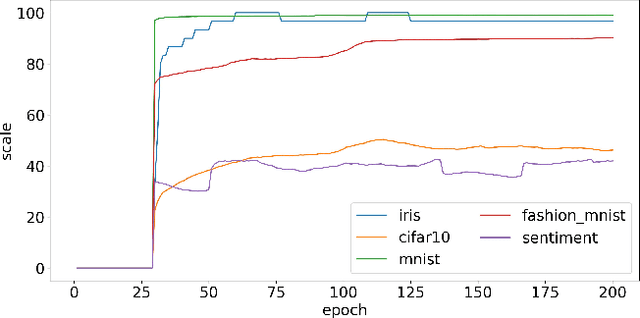DPVS-Shapley:Faster and Universal Contribution Evaluation Component in Federated Learning
Paper and Code
Oct 19, 2024



In the current era of artificial intelligence, federated learning has emerged as a novel approach to addressing data privacy concerns inherent in centralized learning paradigms. This decentralized learning model not only mitigates the risk of data breaches but also enhances the system's scalability and robustness. However, this approach introduces a new challenge: how to fairly and accurately assess the contribution of each participant. Developing an effective contribution evaluation mechanism is crucial for federated learning. Such a mechanism incentivizes participants to actively contribute their data and computational resources, thereby improving the overall performance of the federated learning system. By allocating resources and rewards based on the size of the contributions, it ensures that each participant receives fair treatment, fostering sustained engagement.Currently, Shapley value-based methods are widely used to evaluate participants' contributions, with many researchers proposing modifications to adapt these methods to real-world scenarios. In this paper, we introduce a component called Dynamic Pruning Validation Set Shapley (DPVS-Shapley). This method accelerates the contribution assessment process by dynamically pruning the original dataset without compromising the evaluation's accuracy. Furthermore, this component can assign different weights to various samples, thereby allowing clients capable of distinguishing difficult examples to receive higher contribution scores.
 Add to Chrome
Add to Chrome Add to Firefox
Add to Firefox Add to Edge
Add to Edge